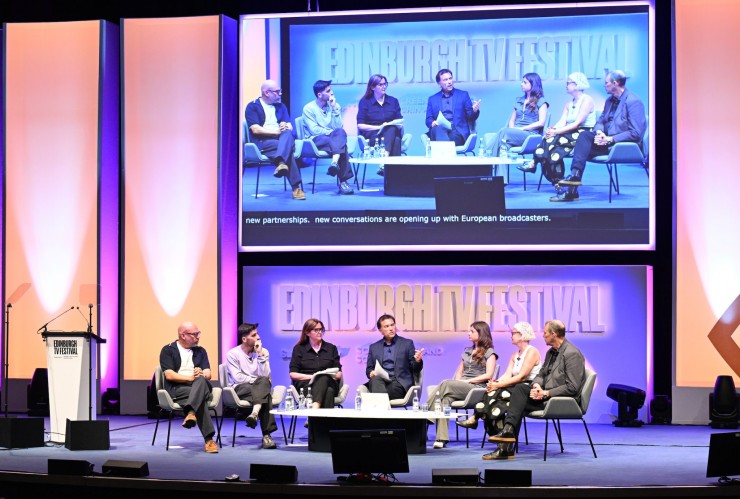Outgoing BBC director general Tony Hall opened this year’s online iteration of the Edinburgh TV Festival with an impassioned declaration that far from being a thing of the past, public service broadcasting is an “idea whose time has well and truly come”.
As he prepares to hand over to successor Tim Davie, Hall said his legacy would be that the BBC has “pivoted to a new world” with on-demand now making up for the fall in linear TV viewing.
Citing Spotify founder Daniel Ek’s claim that only those companies with strong values will survive in the next 30 years, Hall said PSBs are “more relevant, and more needed, than ever”.
Hall’s speech centred on three tenets: the BBC’s role in reflecting and uniting the nation; the corporation’s increased global reach as a British ambassador; and the role of public service broadcasters as a bulwark against commercially- or politically-driven misinformation.
These things are connected, he said, with the covid-19 pandemic ushering in a “massive consultation on what the British public wants and expects from great PSBs”.
He said that World Health Organisation executive director Michael Ryan is urging the PSBs to tackle a “second pandemic of misinformation”, claiming that 30% of people would not use a coronavirus vaccine if introduced tomorrow.
Hall said the BBC currently polls ahead of all domestic networks in the US in terms of trust and reliability, positioning the corporation as “the preeminent provider to the world of facts you can trust” and said PSBs must “continue to bang the drum for what only we can deliver”.
The BBC now reaches 468m people worldwide, close to the 500m target for 2022 that Hall set out four years ago and he revealed a 1bn target by the end of the decade.
Hall said the BBC’s response to lockdown demonstrated an acute understanding of what audiences want: news they can trust, education they can rely on, world-class content and culture and a respite from the pressures of their lives.
Among the shows he hailed were The Repair Shop, Masterchef, Race Across the World, I May Destroy You, Normal People and Once Upon a Time in Iraq, as well as the history output of David Olusoga, who delivers the annual James MacTaggart lecture later today.
Hall said the BBC has “a duty to take risks to help people do the work of their lives and you don’t know where the talent of tomorrow will be found.
“When I look at the extraordinary I May Destroy You, I see much more than an unmissable drama. It’s a unique voice being given unprecedented access to speak to a generation about what’s happening now.”
The BBC has prioritised of £100m of commissioning budget for diverse and inclusive programming, and a mandatory 20% diverse talent target for all new network commissions from next April.
“To get the best people, we need the most inclusive working environment,” he said. “We need to attract people who come from different backgrounds and have different thoughts. We have got to be an organisation that listens and learns from, its mistakes.”
Hall also revealed that the BBC is in talks with the government about building on its extensive lockdown education programming output to establish an ‘open school’ in the spirit of the Open University.

